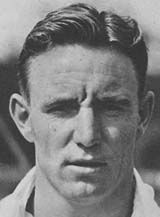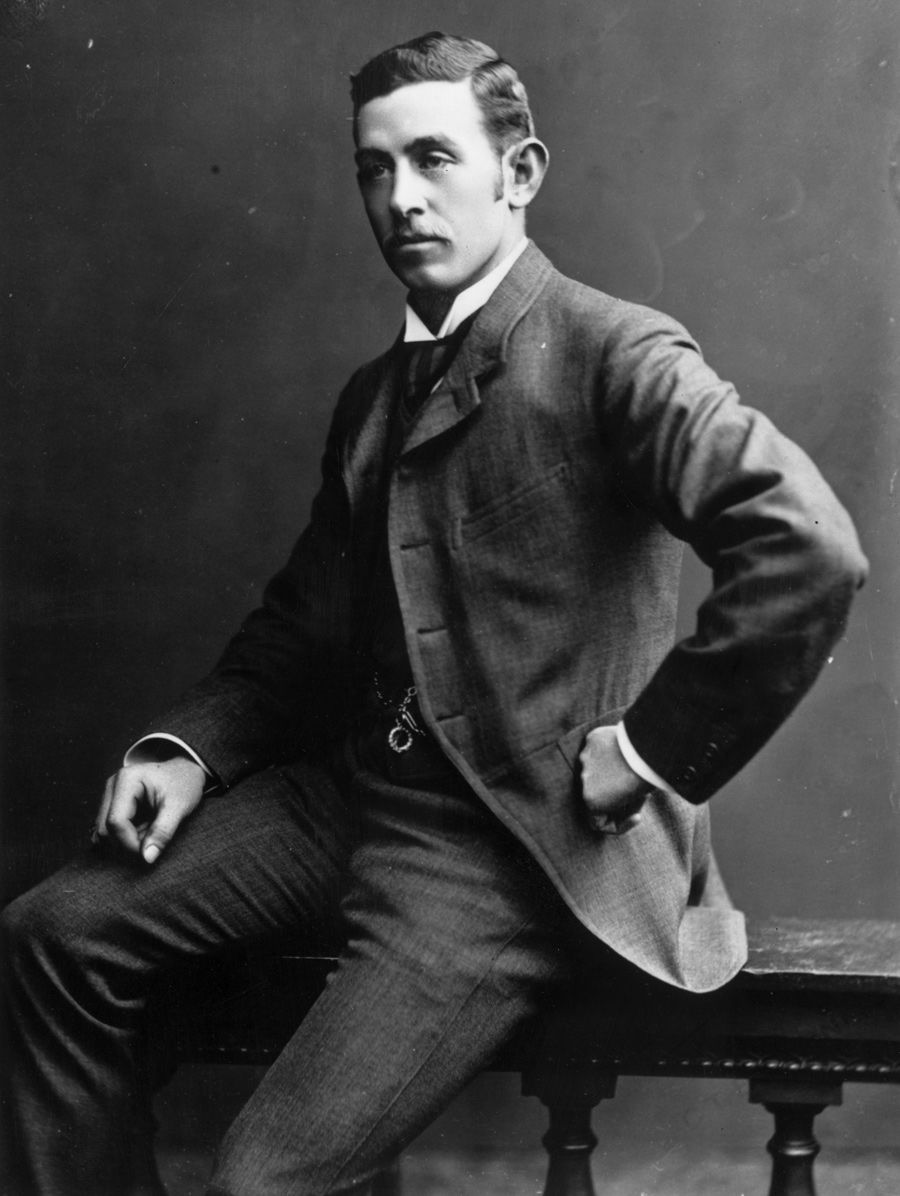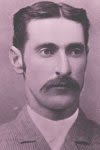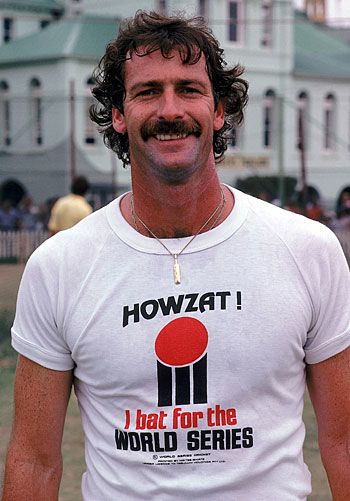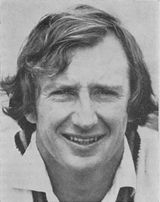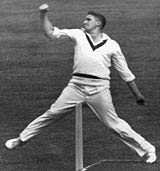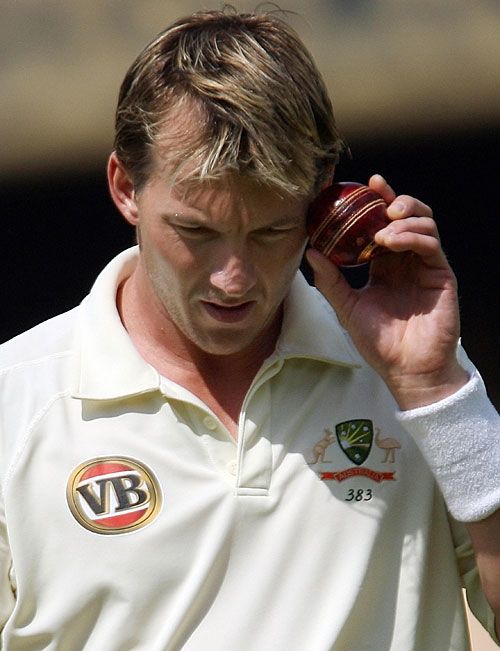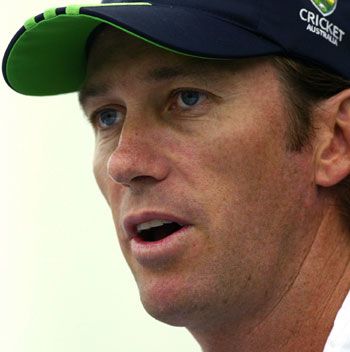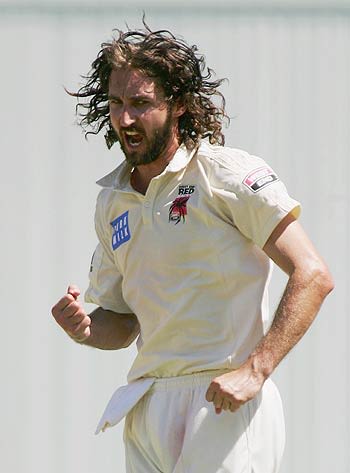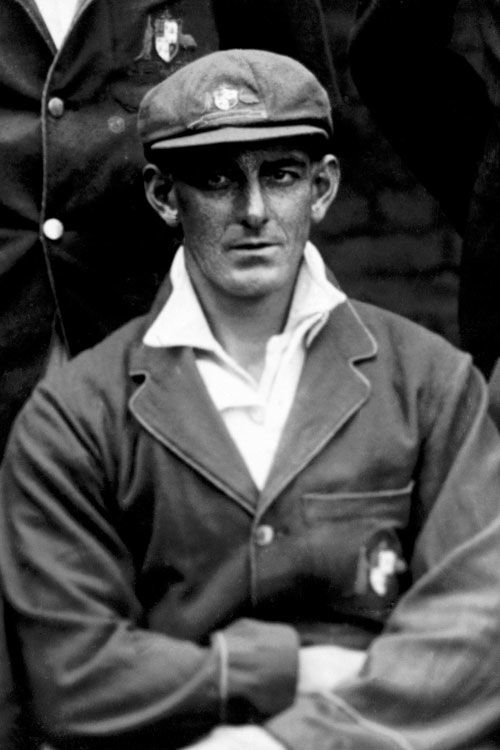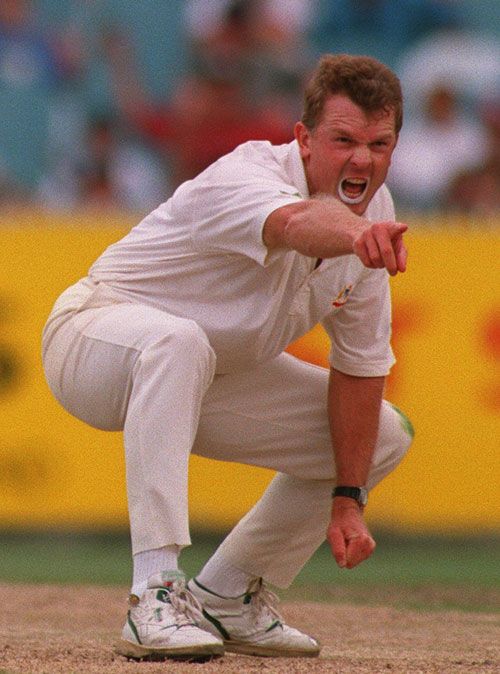This group has the longest list, but condensing it into two spots could be the most challenging exercise in selecting Australia's all-time XI. Does the side require two speedsters or complementary operators? Is an into-the-wind specialist too much of a luxury or is a right-left combination necessary?
Eleven names have been scribbled down, covering some of the most fearsome quicks in history, men whose opponents quivered when they marked their runs. The nicknames of Fred "the Demon" Spofforth and Charlie "Terror" Turner added to the mean bowling reputations of the old-world enforcers, while Dennis Lillee and Glenn McGrath threw angry verbals into their already scary repertoires. Jason Gillespie and Brett Lee also represent the modern generation, which followed eras in which Craig McDermott and Garth McKenzie starred.
Ray Lindwall was a leading man on the 1948 tour, and Alan Davidson joined him in the team in the 1950s as they shocked and stirred batsmen. An unexpected name on the list is Ted McDonald, who played 11 Tests and paired Jack Gregory in a leg-shaking combination, before an outstanding career with Lancashire. The competition for the shortlist was so stiff that Jeff Thomson missed out, shocking one esteemed judge, who rated him the country's best new-ball bowler. More tough decisions are needed to finalise Australia's all-time XI, which will be revealed later this week.
Ray Lindwall A beautiful run-up, incredible control and late swing added to Lindwall's charms over 14 years. He was part of the Invincibles, and his partnership with Keith Miller was one of the greats.
Charlie Turner "The Terror" was a frightening prospect in the late 1800s, and while he appeared in only 17 matches his figures are amazing: 101 wickets at 16.53 with 11 five-wicket hauls.
Fred Spofforth Before the "Terror" was "Demon", Australia's first great fast man. He was one of the original members of the country's Hall of Fame for his demolitions of England in 18 Tests.
Dennis Lillee Mean, muscular and always a huge threat, he terrorised batting line-ups through the 1970s and early 1980s. His 355 wickets were a world record until Botham, Kapil, Hadlee and Co. made their marks.
Garth McKenzie A big-hearted paceman from the 1960s, he narrowly missed becoming the nation's leading wicket-taker when his Test career ended in 1971 with 246 breakthroughs. Big, strong and deceptively quick, he carried any load.
Alan Davidson A left-arm quick, he was an outstanding opening bowler over 10 years in the 1950s and early 1960s. In 44 matches he grabbed 186 wickets at 20.53.
Brett Lee Australia's modern fast man grew up alongside McGrath and Gillespie before taking their place. Probably the quickest in this list, he is hoping to continue building on his 310 victims.
Glenn McGrath - Lillee Mark II, but with more control and a lot more wickets. At the end of his 124 Tests he was the game's most successful quick, with 563 victims.
Jason Gillespie The man at the other end to McGrath was rougher, quicker and sweatier, refusing to bow to a string of serious injuries and finishing as the country's sixth-most successful bowler. Must be remembered for his fierce spells over a decade, not England 2005.
Ted McDonald With Jack Gregory, McDonald formed the formidable opening pairing of the early 1920s. A graceful bowler, he appeared in 11 Tests for Australia before a lengthy and successful career with Lancashire.
Craig McDermott Flame-haired and focussed, McDermott was the leading bowler between Lillee and McGrath. An uncomfortable prospect for batsmen, he swung the ball away at speed, a key reason for his taking of 291 wickets.
Note: readers' voting for the Australia all-time XI has closed. The readers' Xi will be published, along with the jury's, on the 20th of July.
